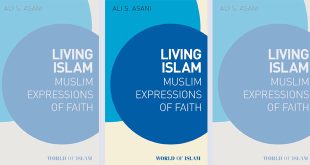For the first time Dubai is permitting day time alcohol sales during the Muslim holy month of Ramada!
The decision caters to Western visitors, and aims to increase revenue tourists and alcohol taxes bring to the Islamic city state.
Previously, those wishing for a glass of wine or a beer had to wait until sundown, when Muslims break the Ramadan fast. The city’s bars and restaurants traditionally played quiet music and hid drinkers behind tinted glass and closed doors during the holy month.
This year Dubai’s Department of Tourism and Commerce Marketing relaxed the standard rules for hotels, as opposed to limiting alcohol sales hours during the month-long fasting period.
The tourism department expects visitors to respect Ramadan rules!
Alcohol sales help Dubai’s tourism as Islamic Republic of Iran, Saudi Arabia and Kuwait, and the neighboring emirate of Sharjah ban liquor and beer sales.
This is while Islamic law says about alcoholic liqure:
– All Alcoholic liquors and beverages which intoxicate a person, are Najis (things or persons regarded as ritually unclean – Contact with najis things brings a Muslim into a state of ritual impurity. Ritual purification is then required before religious duties such as regular prayers are performed) on the basis of recommended precaution, everything which is originally liquid and intoxicates a person, is Najis. Hence narcotics, like, opium and hemp, which are not liquid originally, are Tahir (ritual purity), even when a liquid is added to them.
– All kinds of industrial alcohol used for painting doors, windows, tables, chairs etc. are Pak.
– If grapes or grape juice ferments by itself, or on being cooked, they are Tahir, but it is haraam to eat or drink them.
–If dates, currants and raisins, and their juice ferment, they are Tahir and it is halal to eat them.
 Ijtihad Network Being Wise and Faithful Muslim in the Contemporary World
Ijtihad Network Being Wise and Faithful Muslim in the Contemporary World
